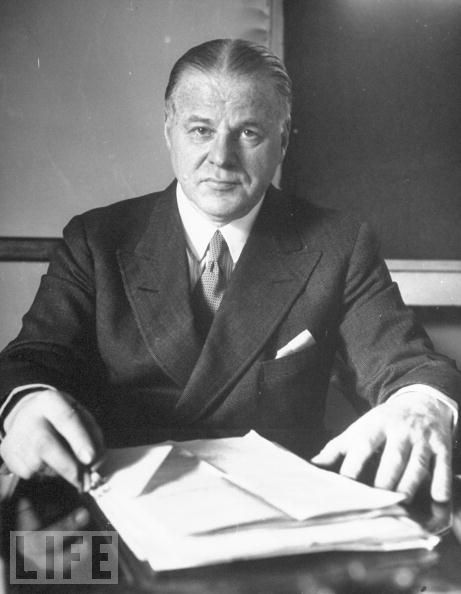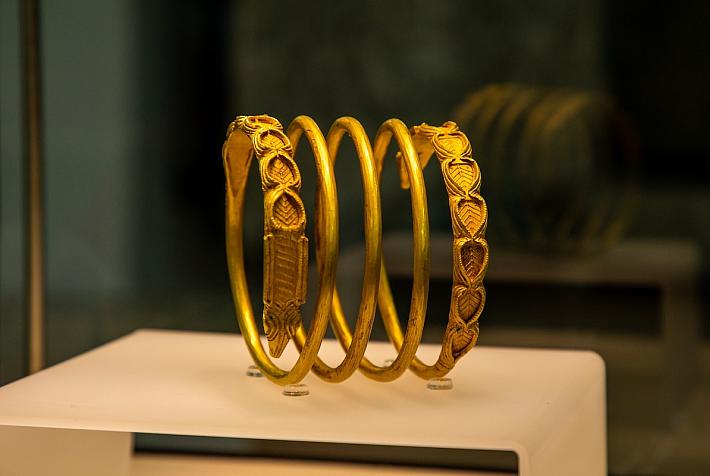Famous Romanians: Max Ausnit, the King of Steel

 Max Ausnit was known in the first part of the 20th century as the King of Steel in Romania. He was one of Romania's principal industrialists at the time and not only had control and stakes in several factories in Romania, but he also controlled factories abroad, in Yugoslavia and Poland. He had to leave Romania twice and was condemned to death in absence by two different regimes in the country at the time. His son, Steven Ausnit, now 86, tells Romania-Insider.com the story of his father.
Max Ausnit was known in the first part of the 20th century as the King of Steel in Romania. He was one of Romania's principal industrialists at the time and not only had control and stakes in several factories in Romania, but he also controlled factories abroad, in Yugoslavia and Poland. He had to leave Romania twice and was condemned to death in absence by two different regimes in the country at the time. His son, Steven Ausnit, now 86, tells Romania-Insider.com the story of his father.
Max Ausnit was born in Galati in 1887. He was the son of Osias Ausnit, who had emigrated from the surroundings of Lvov (then Lemberg), a part of the Austro-Hungarian Empire. As a young man, he was sent by his parents to Vienna to study at the Austrian University of Commerce. He then volunteered and served in the Romanian Army during World War I.
In the early 1920’s, Max Ausnit took over a wire and nail manufacturing factory in Galati, founded by his father, and built it into a steel mill complex called Uzinele Metalurgice Titan Nadrag Calan (TNC). It included a new steel mill at Ferdinand, now known as the Oţelu Roşu, which, along with numerous subsidiaries such as Magazinele Unite, Socomet, etc., employed about 10,000 people.
In the late 1920’s, having purchased a large number of shares in the Austrian company Steg, Ausnit, along with Vickers, one of Steg's shareholders that he represented in Romania, assumed control of the company. The Steg, in turn, owned a Romanian company, Uzinele si Domenile de Reşiţa (UDR), a large steel and steel product manufacturing complex with about 17,000 employees, that was nearly bankrupt. Max Ausnit took over its helm and returned it to profitability. As a result of these acquisitions, he became known in Romania as “Regele de Fier” (King of Steel). Through the Steg, Max Ausnit also assumed control of the steel mill Sartid in the then Yugoslavia and a locomotive factory in Poland.
In 1940, at the instigation of Malaxa, another industrialist of the time, King Carol, who coveted Max Ausnit’s wealth, falsely accused him and, in a pre-arranged trial, had him convicted on fictitious charges and condemned him to prison and to a huge fine, according to Steven Ausnit. He was then imprisoned at Jilava, a prison where few survived. Nevertheless Max Ausnit survived it, being even on certain occasions protected by the prisoners themselves.
After King Carol’s flight from Romania, General Antonescu allowed Max Ausnit first to be held in a sanatorium from which he narrowly escaped during the period of the Iron Guard Revolution, and then under house arrest in Bucharest.
In 1944, after having learned that the German Nazis, were planning to have him killed, Ausnit flew out of the country with the help of his good friend, Matei Ghica, who was a pilot in the Romanian Air Force. They flew to Egypt. After he left, the Germans initiated a trial and condemned Ausnit to death in absence.
After Germany surrendered, at the request of the Four Power Commission then governing Romania, Max Ausnit returned to assist in the reconstruction of the country. At that time, he was completely exonerated of all the false charges that had been previously leveled against him. When, in 1947, it became evident that Romania would fall under the Russian sphere of influence and the country would be run by a Communist regime that would also try to destroy him, Ausnit decided to leave the country for good. He went to the US and became an American citizen.
A year later, the Romanian Communist Government confiscated all his properties and later also condemned him to death in absence. He was thus condemned to death by both of the most despotic regimes of the 20th century.
In the US, together with his brother, Edgar, who had also been a partner in Titan Nadrag Calan and its subsidiaries, Ausnit started a company, Flexigrip Inc., later called Minigrip, Inc., that manufactured plastic zippers for the packaging industry. Max Ausnit died in 1957 and never saw its success. Minigrip, which became a subsidiary of ITW and is now known as ITW Zippak, spawned an industry in reclosable packaging.
Max Ausnit was survived by his son, Steven Ausnit, by Steven’s daughters, Suzanne Salak and Christine Hood, and by Steven’s grandchildren, Byron and Adam Hood and Saskia Salak.
Steven Ausnit and the wife of his deceased brother Robert, Nuria Gimeno Ausnit, have instituted claims in the Fondul Proprietatea for the properties confiscated by the Romanian state during the Communist regime. They have recouped their father's house on Aleea Alexandru in Bucharest and sold it to Romanian businessman Gigi Becali.
The Ausnit heirs also received shares in Fondul Proprietatea based on Ausnit's holdings in Resita. Additionally, according to Steven Ausnit, “We have recently won our case in the Court of Appeals as far as our right to shares in the Fund based on my father's holdings in Uzinele Metalurgice Titan Nadrag Calan”
editor@romania-insider.com












